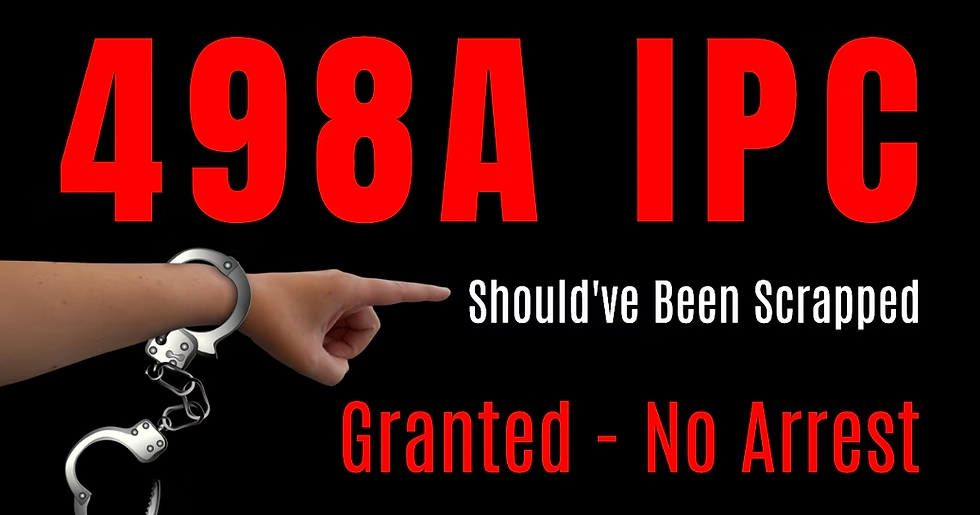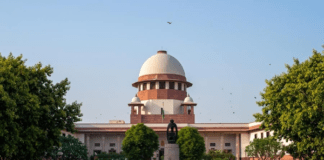SC upholds Allahabad HC’s 2‑month no-arrest in 498A FIRs, calls for Family Welfare Committees – impacts police practices & matrimonial disputes.
Subheading (Intro)
The Supreme Court reaffirmed the Allahabad High Court’s directive to avoid immediate arrests in Section 498A cases, mandating referral to Family Welfare Committees (FWCs) as a safeguard against misuse.
Supreme Court’s Endorsement: Key Development
On July 22, 2025, the Supreme Court formally endorsed the Allahabad High Court’s guidelines that prohibit arrests for the first two months after a 498A FIR (cruelty by husband or family) unless the Family Welfare Committee confirms prima facie cruelty. The court emphasized this approach as a balanced mechanism to protect both accused and complainant rights.
🔍 Legal Context
These guidelines were first framed in Social Action Forum for Manav Adhikar v. Union of India (2018, 10 SCC 443), where the Supreme Court mandated machinery—such as FWCs—and procedural safeguards before arrest in 498A cases. The judgment addressed rampant misuse and framed a quasi-judicial process.
In Shivangi Bansal vs Sahib Bansal, the Apex Court reaffirmed and extended Social Action Forum’s principles, reinforcing that arrest under Section 498A should be preceded by prima facie findings of cruelty based on the Family Welfare Committee’s investigation.
Landmark Judgments at a Glance
| Case | Year | Key Holding |
|---|---|---|
| Social Action Forum for Manav Adhikar v. Union of India | 2018 | Introduced Family Welfare Committee; no arrest or RR (remand) before 4 weeks; no prosecution without FWC recommendation. |
| Shivangi Bansal vs Sahib Bansal | 2021 (reported) | Reiterated need for prima facie cruelty; enshrined FWC’s role in 498A cases; clarified that delay in investigation isn’t delay in justice. |
These judgments created a legal shield for accused individuals, without denying relief to genuine victims, and set the stage for Allahabad HC’s robust implementation.
What Allahabad High Court Ruled
The Allahabad High Court replicated the Supreme Court’s guidelines, ordering that:
- No arrest be made in 498A cases within the first two months of filing.
- Cases be sent to FWCs for detailed counseling and fact-finding.
- Arrests only follow when FWCs find evidence of actual cruelty.
- Authorities submit monthly compliance reports to the HC.
Yesterday, the Supreme Court ratified this scheme, preventing friction between state-level adoption and judicial instructions. The judgment instructs all States and UTs in India to implement these safeguards nationwide.
Expert Perspectives: Voices of Authority
Former Chief Justice Ranjan Gogoi remarked:
“The Supreme Court is walking a difficult tightrope—balancing protection for women against the damage of false FIRs on innocent families. Institutionalizing FWCs ensures due process.”
Justice Ruma Pal (retired) added:
“In a message, the court is signalling zero tolerance for misuse while preserving legal remedies for aggrieved women.”
Implications for Law Enforcement
Police and investigative agencies must adapt:
- Mandatory FWC Referral: All 498A FIRs to be notified to FWC within 14 days.
- Arrest Holds: Cannot arrest accused before FWC findings, barring exceptional cases of violence.
- Counseling & Mediation: FWCs must attempt settlement and surface true issues.
- Reporting: Police must file FWC compliance reports each month.
Failure to comply might result in departmental action or contempt proceedings, as emphasized by both Allahabad HC and now SC.
Impact on Matrimonial Parties
For Accused Individuals
- Protection from false allegations and immediate arrest.
- Opportunity to settle disputes without court involvement.
- Assurance of procedural fairness and no immediate stigma.
For Complainants
- Access to swift investigation by FWCs.
- Facilitation of conciliation where possible.
- Reserved right to re-open proceedings if FWC confirms cruelty.
For Families and Counsel
- Need to engage proactively in FWCs.
- Legal strategies must now include handling FWC stages.
- Defense counsel must monitor FWC processes keenly.
Why It Matters: Public Policy & Justice
Balanced Justice
This move echoes Bill Kovach & Tom Rosenstiel’s “accuracy, fairness, and transparency” principles from The Elements of Journalism, reinforcing procedural justice .
Preventing Sensationalism
The panel-based approach discourages headline-chasing controversies around immediate arrests, in line with Alain de Botton’s caution in The News: A User’s Manual on sensationalism .
Ensuring Credibility
Strict procedures and cross-checking reduce both false allegations and undue delays—a balance Wynford Hicks, in Writing for Journalists, would consider essential for integrity .
What’s Next?
- States must comply with directives; IPS training, standard operating procedures, and police manuals need updates.
- Judicial monitoring to continue changing compliance dynamics, ensuring FWCs are operational and independent.
- Civil society’s role becomes pivotal—monitoring FWC functioning, collection of compliance data, and raising public awareness.
Resources & Further Reading
- ▶️ For procedural clarity, watch legal expert analysis on The Legal Observer’s YouTube channel: The Legal Observer.
- 📚 Read more legal developments on The Legal Observer’s national news section.





